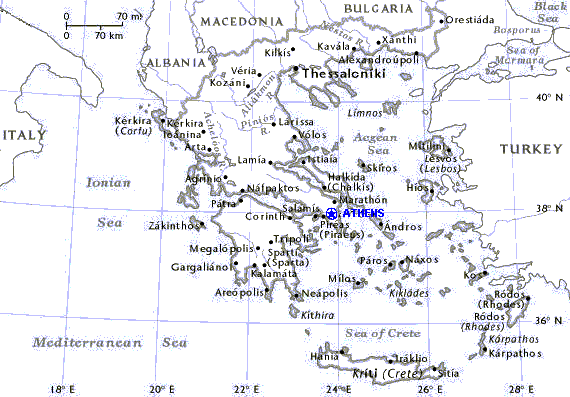Area
Population
Religion
Language
Literacy
Life Exp.
Membership in the European Union has helped stimulate industry, agriculture, and shipping. Greece's maritime fleet is the largest in Europe. Recent economic growth, lower inflation, and lower unemployment have helped Greece somewhat overcome its position as one of the poorest of the EU countries in terms of per capita income.
The unique ecosystems of the National Forest of Prespa and the dense woodlands of the Rhodope Mountains have been set aside as international preserves. Athens, whose classical monuments are threatened by air pollution, is a commercial hub for the Mediterranean region and the Middle East. Greece's ancient treasures, striking landscapes, and pleasing climate are irresistible, enticing some 10 million visitors a year.
